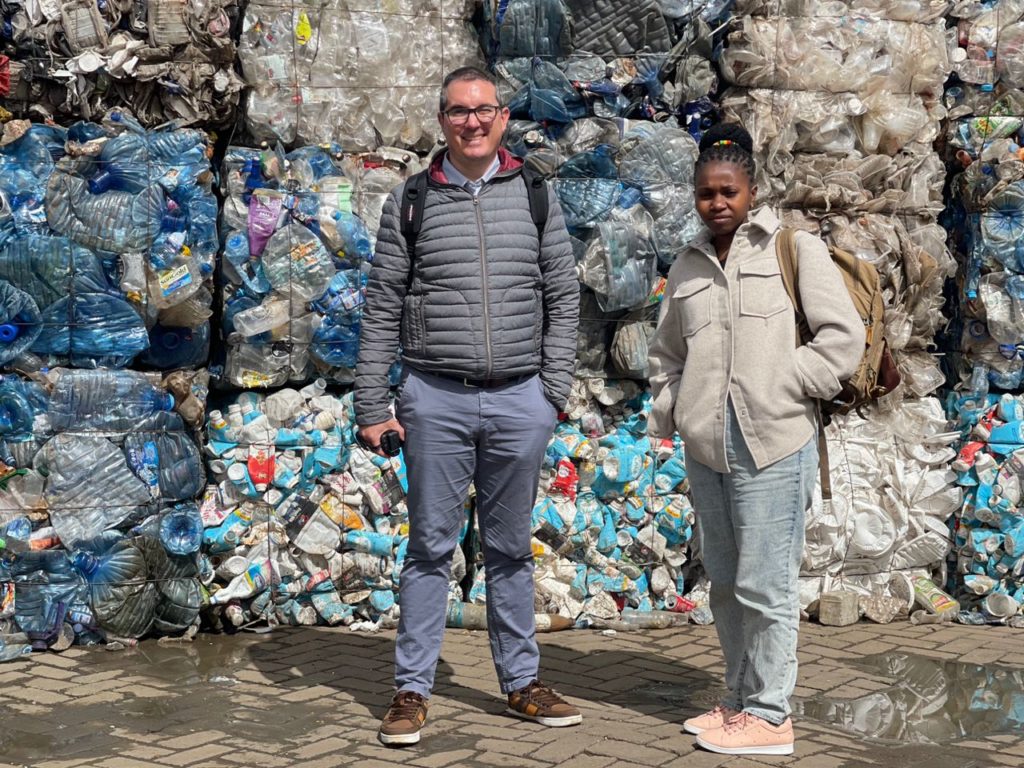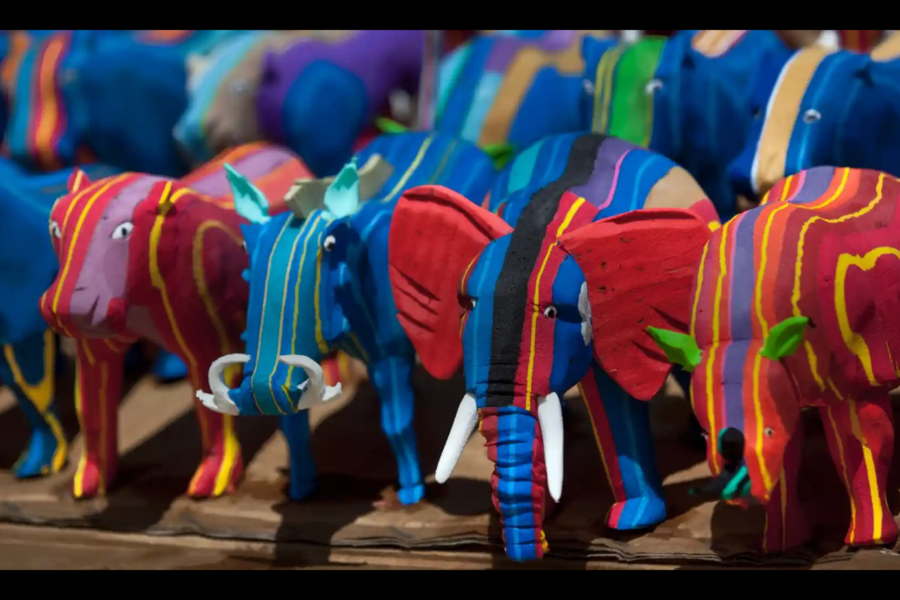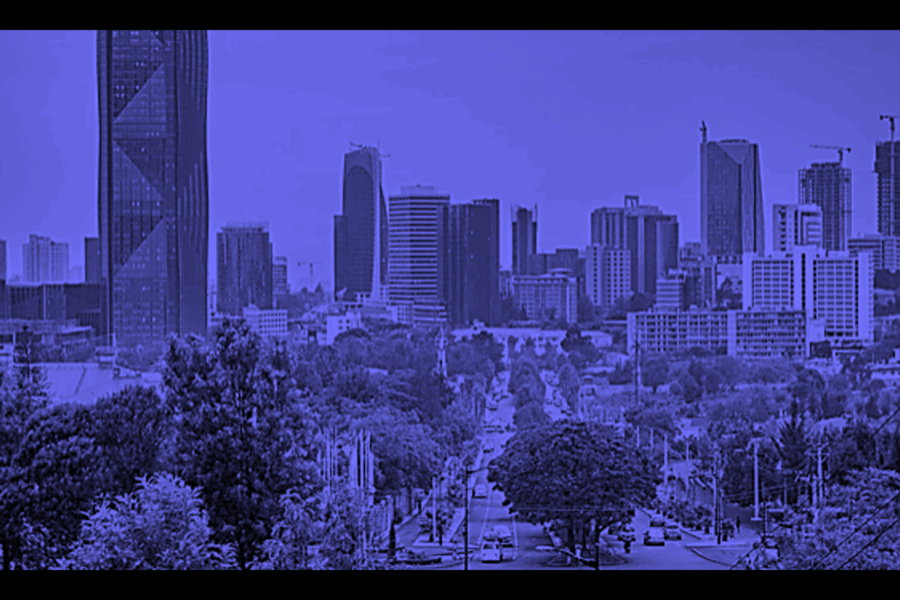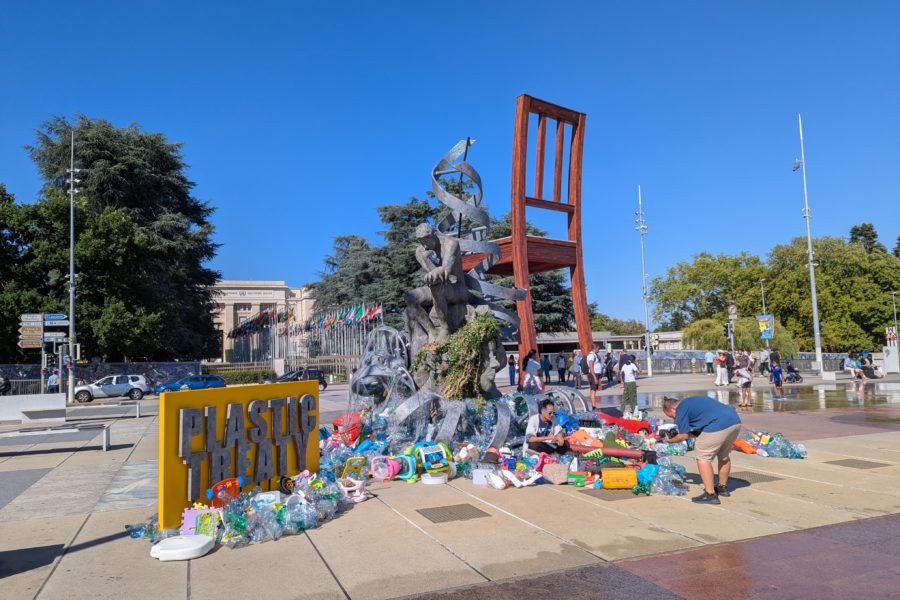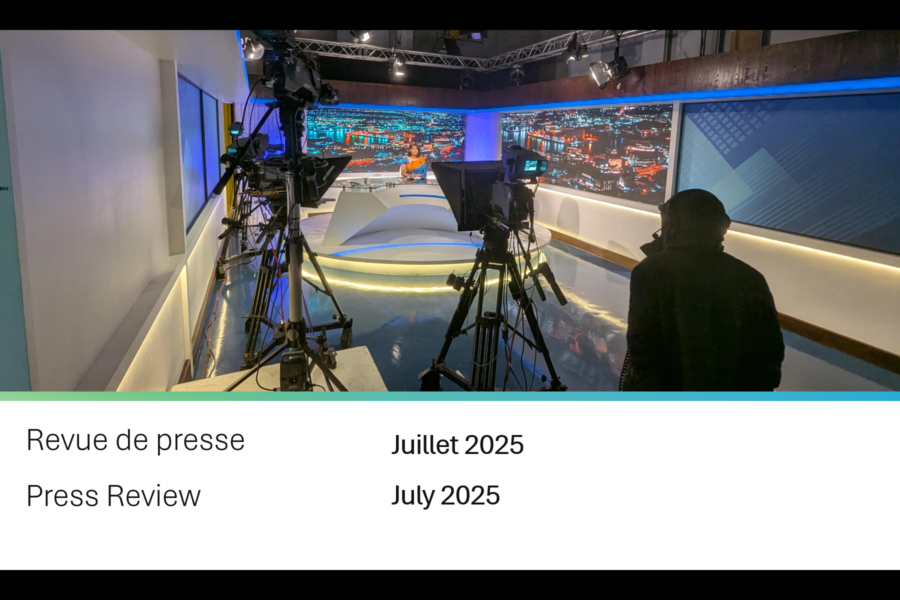Africa 21 is organizing a workshop from November 6 to 10, 2023 in Nairobi for journalists from Kenya, Tanzania, Uganda, Rwanda, Ethiopia, Ghana and Nigeria on Circular Economy.
| This workshop is in hybrid format. If you are an African journalist, you speak English and this subject interests you, you can register to follow the online workshop at the email journalist@africa21.org by indicating in the title of the email » registration workshop CE Nairobi 2023″. |
Our Partners
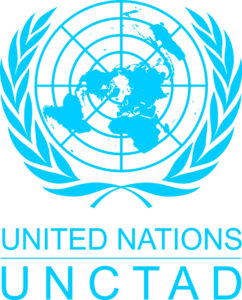 |
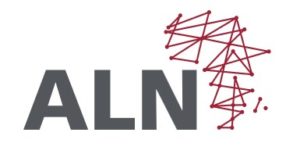 |
 |
 |
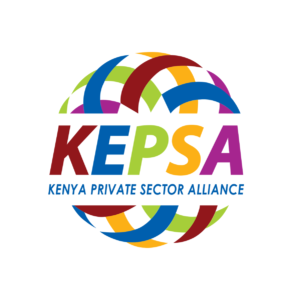 |
Context
The majority of economic system in the world today is based on a linear use of raw materials, that of a society of rapid and mass consumption, of the disposable: extract, transform, use and throw away. However, this model is no longer sustainable in the long term given the environmental and climatic challenges facing a planet with limited resources. Moreover, the secondary effects of this productivist model, from a socio-economic, health and geopolitical point of view, are well known. In a context where the actors of the African continent are invited to accelerate industrialisation and job creation, a new model must be reinvented.
This new model, which is increasingly being promoted, is that of the circular economy, which aims to respond to the preservation of resources, our environment and our health, as well as to enable the economic and industrial development of territories, and to reduce waste and wastage.
There are many issues at stake: sustainable supply, eco-design, industrial and territorial ecology, functionality economy, responsible consumption, extension of the useful life of products or improvement of waste prevention, management and recycling.
Africa is taking the plunge. Indeed, at the continental level, the African Union and the African Ministerial Conference on the Environment have recognised circularity as an area of focus for therespective recovery programmes they have launched in the wake of the Covid-19 pandemic (the continental recovery plan known as the « green stimulus »). Several African countries have also integrated the circular economy into their Nationally Determined Contributions (NDCs) and some are in the process of developing national circular economy action plans.
Sustainable Development Goal 12 « Responsible consumption and production » will be the focus of the Network’s activities for the year 2023, and in particular targets 12.1 to 12.7. Africa 21, through this programme, contributes to the implementation of target 12.8 « By 2030, ensure that people everywhere have the information and knowledge necessary for sustainable development and a lifestyle in harmony with nature ».
Concept
The training is based on a multidisciplinary (economics, law, social and legal sciences, environmental sciences, etc.) and multi-actor approach at the multilateral, regional and local high level. It aims to raise awareness of circular economy actors, programmes, initiatives and innovations.
The seminar part will be supplemented by field visits to meet the players and see the initiatives in action.
The following main themes will be addressed and adapted to the East african context :
- Sustainable sourcing: taking into account the environmental and social impacts of the resources used, in particular those associated with their extraction and exploitation.
- Eco-design: taking into account the environmental impacts of a product’s entire life cycle and integrating them from the design stage.
- Industrial and territorial ecology: creating synergies and pooling the flow of materials, energy, water, infrastructure, goods and services between several economic players in order to optimise the use of resources in a given territory.
- Functional economy: favouring use over possession, selling a service rather than a good.
- Responsible consumption: taking into account the environmental and social impacts at all stages of the product’s life cycle when making purchasing choices, whether the buyer is public or private.
- Extending the useful life of products by repairing, selling or buying second-hand, donating, reusing and re-using.
- Improving waste prevention, management and recycling, including the re-injection and re-use of waste materials into the economic cycle.
These different axes will be based on relevant economic sectors at regional level such as industry and consumer goods, textile industry or tannery. The workshop will present the challenges of these different economic sectors and will focus on the solutions and technologies developed to address them. A special focus will also be given to the treaty on the use of plastics and alternative solutions to avoid its use.
Agenda
Event moderated by Thuku Wilson Kariuki
Monday 6 November
10 AM Opening Ceremony
Opening Remarks : Héctor Guerra, partner relations manager, Africa 21
- Anita Siro, Environment and Biodiversity Officer, British High Commission
- Henrique Pacini, UNCTAD
- Christo van Schalkwyk, Operations Team, African Circular Economy Network (ACEN)
- Rosa Nduati-Mutero, Managing Partner, ALN
- Josephine Wawira, Communications Lead, KEPSA – Sustainable Inclusive Business
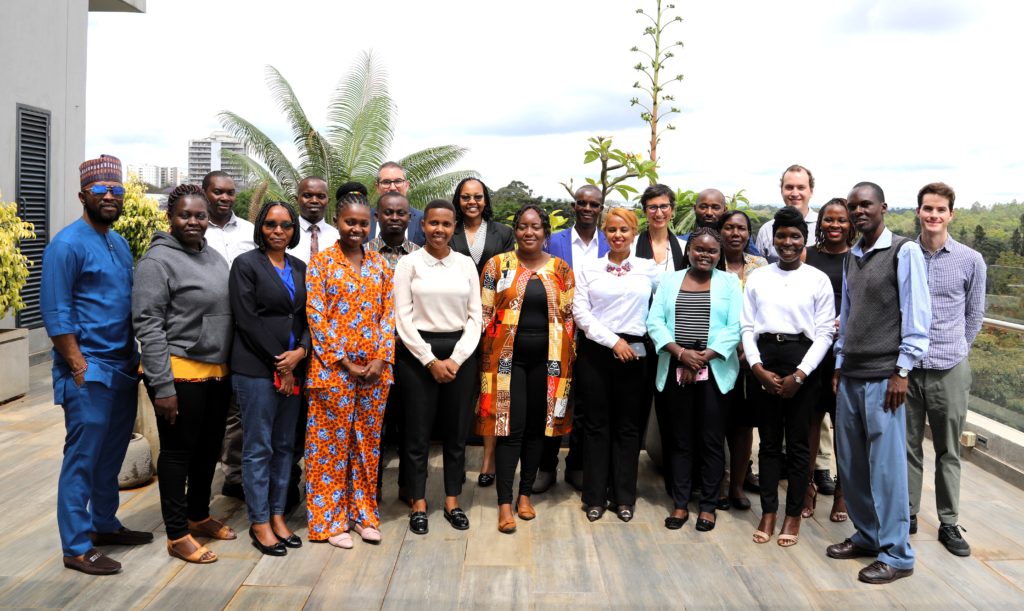
11 AM-12 PM Introductory session: the international challenges of the circular economy /geopolitic of a new economic model
- Charles M. Akol, Environmental Affairs Officer, Lead expert on Circular Economy, UNECA
To access his presentation : ECA Presentation- Introductory session Rev 06112023 Shared Charles Akol
2 PM – 4:30 PM Session 2 – Why the circular economy? Environmental, social and economic issues / The limits of the world system. Why the circular economy? Environmental, social and economic issues
Broad perspectives on Africa legislations
- Rosa Nduati-Mutero, Managing Partner, ALN
To access her presentation : ALN -The Circular Economy- Overview of Legislations in Africa 6.11.23_Rosa
Financing the circular economy
- Margaret Kamau, African Circular Economy Alliance (ACEA) Secretariat
To access her presentation : Journalist Training CE Slides_November 2023 Kamau
For more information :
Presentation of the concept and its different approaches
- Ntobeko Boyana, Executive Member of ACEN :
To access his presentation : Why Circular Economy Boyana
Tuesday 7 november
10 AM-10:30 AM Introduction SDG 12
- Piotr Barczak, Member of ACEN
To access his presentation : Barczak – ACEN Foundation – Africa21- workshop for journalists on cirucalr economy and SDG12 November2023
To have more informations :
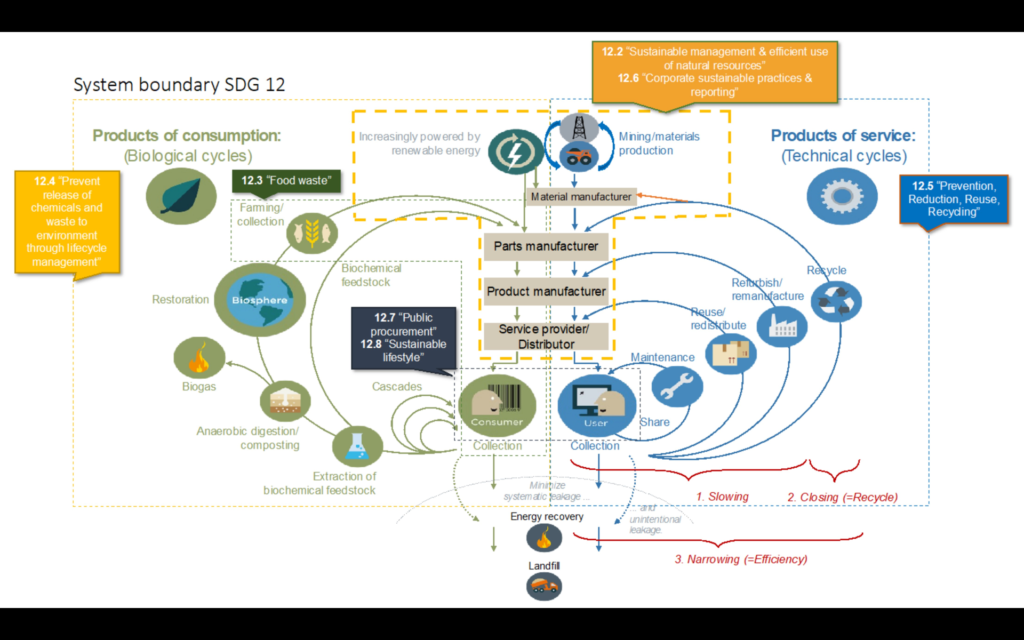
10:30AM-12:30 PM Session 3 – Actors, standards and public policies
Hazardous waste and the circular economy: emerging policies and standards, nano level circulation and the example of 7Cbasalia
- Dr. Tobias Schmitz, Environmental Advisor for 7Cbasalia Global
Legal landscape in Waste management in East Africa, example in Kenya
- Huldah Ateka, Principal Associate, ALN
To access her presentation : Project SUP- Waste Management EAC- 06.11.23 Huldah
For more information:
2PM-4:30 PM Session 4, Advancing decent work in the circular economy
- Casper N. Edmonds, Head of Unit for Extractives, Energy and Manufacturing, ILO
- Luke Carroll, Junior Technical Officer, Extractives, Energy and Manufacturing Unit, ILO
To access to ILO presentation : Advancing decent work in the circular economy ILO
- Jana Rue Glutting, Circle Economy Foundation
To access to Jana-Chin presentation : Circle Economy Foundation_Africa21_07112023
For more information :
- Decent Work in the Circular Economy Report
- Our latest Circular Jobs Initiative’s annual Circular Jobs Bulletin 2022
- The 2023 Global Circularity Gap Report
- Thinking Beyond Borders to Achieve Social Justice in a Global Circular Economy
Collaborated with Oxfam Novib to design and deliver the Circularity Services Toolbox/ Package under the Impact SME Development Progamme - Microlearning programme for students on jobs and skills in a Circular Economy (in partnership with UNESCO-UNEVOC)
- Jobs in the Circular Economy Initiative
- Work Adjustment for Recycling and Waste Management
- Work Improvement for Safe Home: Action manual for improving safety health of e-waste workers
- The SCORE Programme
- Enabling Environment for Sustainable Enterprises
- Sustainable Enterprises: Promotion of sustainable enterprises for innovation, growth, more and better jobs (A brochure of ILO advisory services)
Wednesday 8 november
10AM-12:30 PM Session 5 Sectoral approach
Material Substitutes and multilatel processes
- Henrique Pacini, Economic Affairs Officer, UNCTAD
To access his presentation : Presentation Henrique Pacini UNCTAD
Sustainable manufacturing and environmental pollution (SMEP) Programme focus on plastics and food and beverage industry projects
- Glen Wilson, Programme Management Officer, UNCTAD
To access his presentation : Presentation Glen Wilson UNCTAD
Find out more about the SMEP program :
Flip Flop project
- Davina Ngei and Katharina Elleke, Flip Flop,
2:30PM Afternoon – Field visit
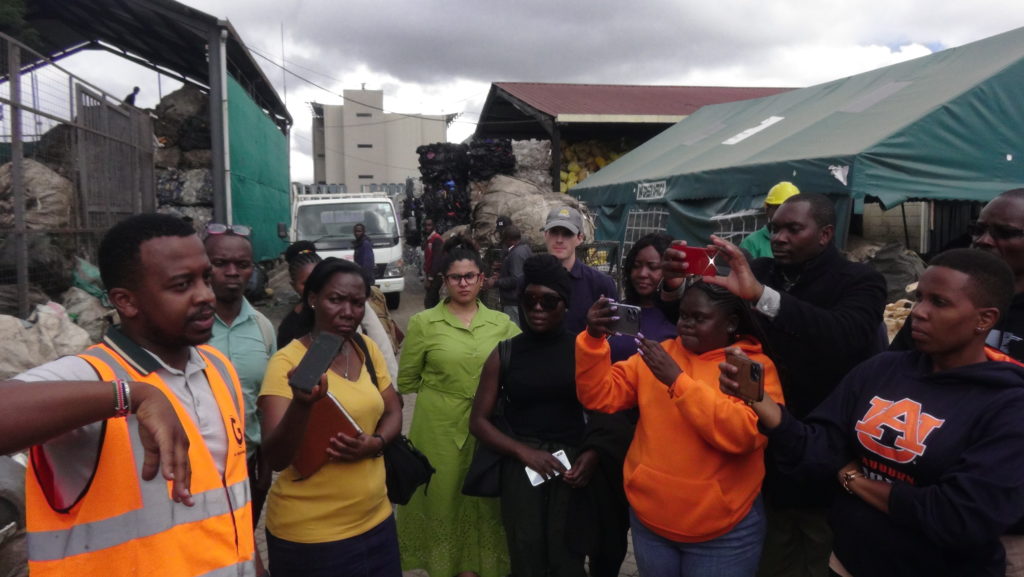
- Mr. Green Africa (plastic waste management) https://www.mrgreenafrica.com/
Thursday 9 november
9 AM- 6 PM Day at The 8th edition of the Annual Circular Economy Conference.
Emara Ole-Sereni Hotel in Nairobi, event website
To view the event program, click here.
Meet the actors and understand sectoral economic issues on circular economy
10:30 AM Press conference with circular economy entrepreneurs and actors
To listen to the press conference :
Friday 10 november
9 AM – 10 AM Editorial Conference Part1
10 AM – 12 PM UNESCO consultative technical meeting
Developing a Handbook on Disaster Risk Reduction (DRR) for African Journalists and a Review of the Training Manual on Environmental Journalism
12 PM-12:45 PM Editorial Conference Part 2
12-45 PM- 13:15 PM Closing remarks
- Lydia Gachungi, Regional Adviser on Freedom of Expression and Safety of Journalists
